2017-18 Team Canada Winter Preview: Long Track Speed Skating
If you last watched long track speed skating at Sochi 2014, you saw a Canadian team that won two medals, both by Denny Morrison.
But at the three World Single Distances Championships since then, Canadian speed skaters have stood on the podium 11 times in eight different events. That diversity could be hugely important at PyeongChang 2018 to add to the 35 Olympic medals Canada has won in long track speed skating, the country’s largest total in any winter sport.
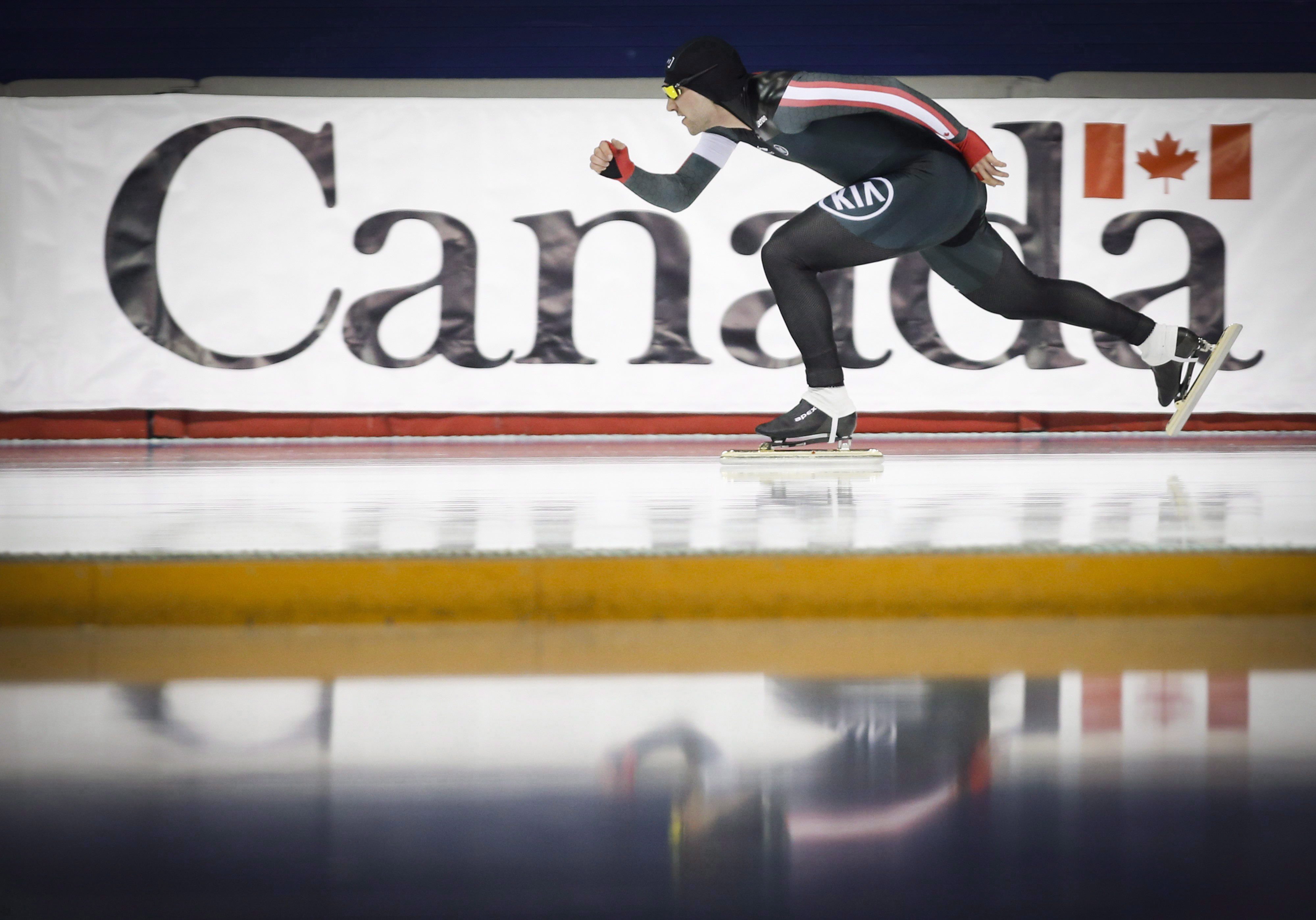
Team Canada’s Vincent De Haitre skates during the men’s 500m at the ISU World Sprint Speed Skating Championships in Calgary, Alta., Sunday, Feb. 26, 2017.THE CANADIAN PRESS/Jeff McIntosh
Who is competing?
Speed Skating Canada announced that the following athletes would compete at the first four World Cup stops of 2017-18, dependent on the events included at each:
Jordan Belchos, Ted-Jan Bloemen, Ivanie Blondin, Alex Boisvert-Lacroix, Kali Christ, Vincent De Haître, Ben Donnelly, Laurent Dubreuil, William Dutton, Noémie Fiset, Graeme Fish, Christopher Fiola, Antoine Gélinas-Beaulieu, Marsha Hudey, Kaylin Irvine, Olivier Jean, Gilmore Junio, David La Rue, Heather McLean, Denny Morrison, Josie Morrison, Keri Morrison, Shannon Rempel, Victoria Spence, Alexandre St-Jean, Brianne Tutt, Isabelle Weidemann
When and where are they competing?
There are five pre-Olympic stops on the ISU World Cup circuit:
November 10-12, 2017 – Heerenveen, Netherlands
November 17-19, 2017 – Stavanger, Norway
December 1-3, 2017 – Calgary, Alberta
December 8-10, 2017 – Salt Lake City, Utah
January 19-21, 2018 – Erfurt, Germany
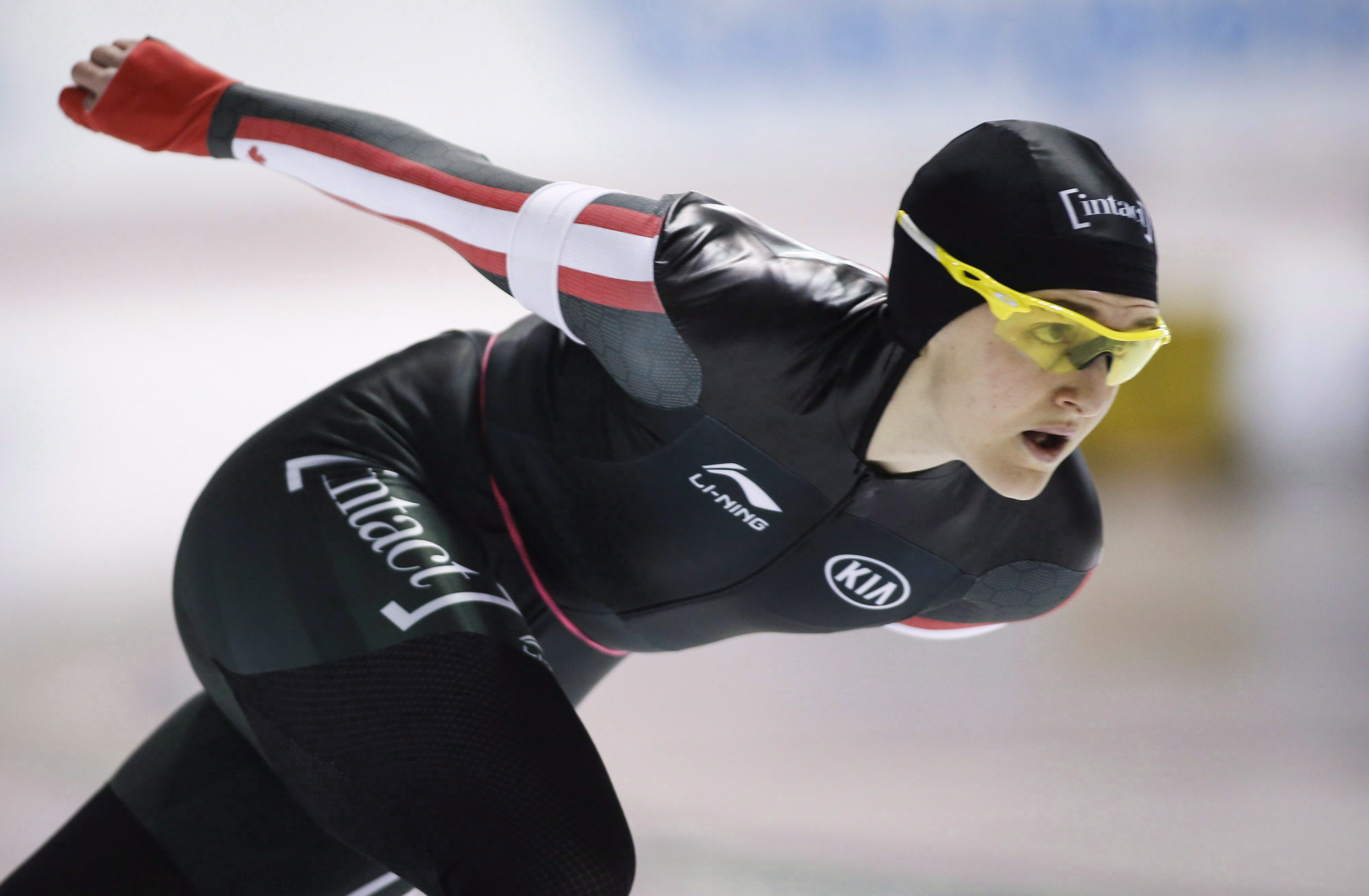
Team Canada’s Heather McLean skates during the women’s 1000m at the ISU World Sprint Speed Skating Championships in Calgary, Alta., Saturday, Feb. 25, 2017.THE CANADIAN PRESS/Jeff McIntosh
How do they qualify for PyeongChang 2018?
Results from the first four World Cups this fall will determine how many Olympic spots each country will have.
A Special Olympic Qualification Classification will be created for each event by combining two sets of rankings: one based on World Cup points earned and one based on the best times achieved by each skater. Most entries in each event will be qualified via the points ranking but some will be based on the time ranking.
There are limits on how many skaters can be entered in each Olympic event:
500m/1000m/1500m = 36 men/32 women
3000m (women only) = 24
5000m = 24 men/12 women
10,000m (men only) = 12 men
Mass start = 24 men/24 women
Team pursuit = 8 men’s teams/8 women’s teams
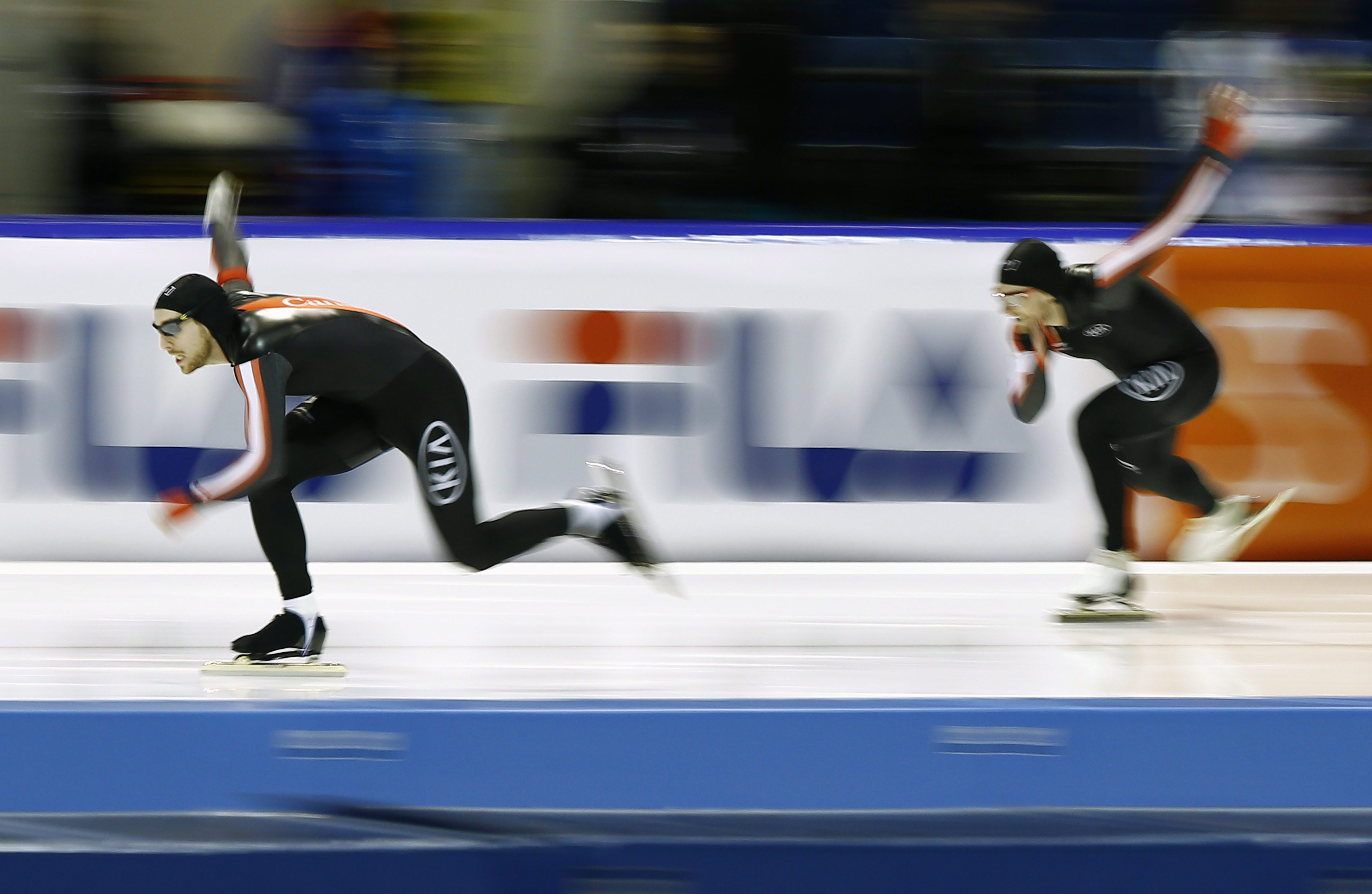
Team Canada William Dutton, left, and Laurent Dubreuil skate during the men’s 500m of the Speed Skating World Cup Final in Heerenveen, Netherlands, Friday, March 11, 2016. (AP Photo/Peter Dejong)
Within that, the 500m, 1000m, 1500m, women’s 3000m and men’s 5000m have a limit of three entries per country. The women’s 5000m, men’s 10,000m and both mass starts limit each country to two entries.
If a country earns Olympic spots in all events, including mass start and team pursuit, it can send up to 10 men and 10 women to PyeongChang. Otherwise there is a maximum of eight athletes per gender.
Once Canada knows how many spots it has earned, they will be filled at the Long Track Team Selections in Calgary, January 4-9, 2018. Skaters can pre-qualify themselves to the Olympic team by winning a World Cup medal in an individual event and finishing in the top five of the Special Olympic Qualification Classification.
What should we watch for?
Canadian athletes always seem to do well in new Olympic events, so it was great news for Canadian medal hopes in PyeongChang when it was announced that the mass start would make its Olympic debut in 2018.

Team Canada’s Ivanie Blondin reacts after winning the women’s mass start race of the World Single Distances Speed Skating Championships in Kolomna, Russia, on Sunday, Feb. 14, 2016. (AP Photo/Ivan Sekretarev)
Ivanie Blondin is a two-time world medallist in the event, including taking the world title in 2016, showing a comfort with pack racing from her years as a short track speed skater. The same can be said for a more recent convert from short track, Vancouver 2010 5000m relay gold medallist Olivier Jean. In his first trip to the World Single Distances Championships in 2017, he won mass start bronze on the big oval.
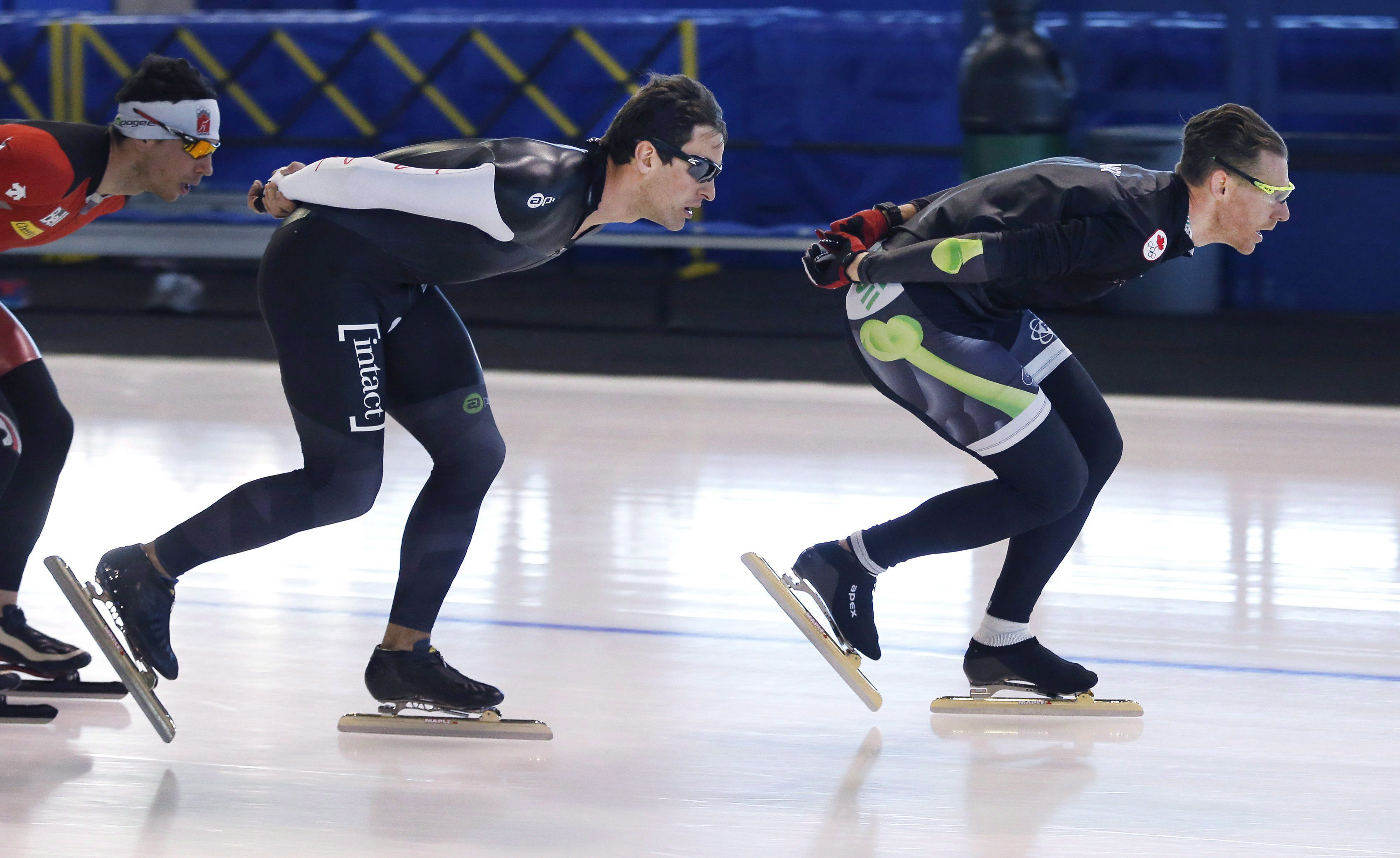
Team Canada speed skater Olivier Jean, right, is followed along the track by Denny Morrison during team training in Calgary, Alta., Monday, Oct.19, 2015. THE CANADIAN PRESS/Larry MacDougal
Blondin is also eyeing the podium in the 5000m, in which she won bronze at the 2017 Worlds. But while Canada has had a lot of recent Olympic success in that event (mainly thanks to Clara Hughes), the same can’t be said for the men’s longest distances. No Canadian man has won an Olympic medal in the 5000m or 10,000m since Lake Placid 1932. No Canadian has even qualified for the 10,000m since Turin 2006. Ted-Jan Bloemen has the best shot at ending that drought, boasting such credentials as 10,000m world record holder and 2016 World silver medallist.
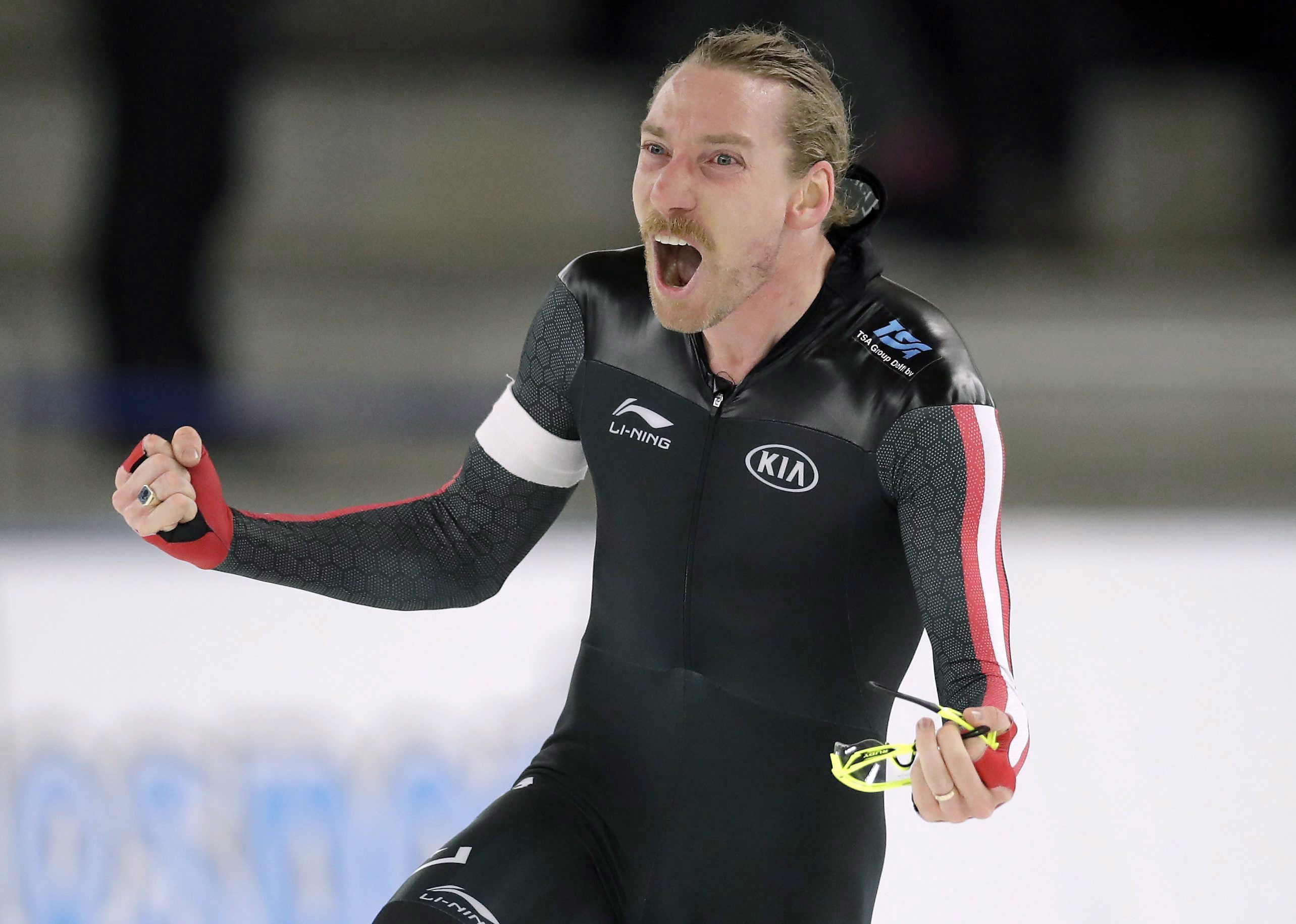
Team Canada’s Ted-Jan Bloemen celebrates after his men’s 5000m the Speed Skating World Cup in Berlin, Germany, Saturday, Jan. 28, 2017. (AP Photo/Michael Sohn)
The new Canadian king of the middle distances is reigning 1000m World silver medallist Vincent de Haître. But making his way back into the mix after missing time because of a motorcycle accident and stroke is Denny Morrison. With four Olympic medals already in his trophy case, one more would tie him as Canada’s most decorated male Olympian.
The man who was central to Morrison even getting to race the 1000m at Sochi 2014, Gilmore Junio, spent the summer training in Norway under the guidance of Canadian legend Jeremy Wotherspoon. While Junio looked good in a highly competitive 500m at the recent national trials, so did several other men, including a couple of World bronze medallists, Alex Boisvert-Lacroix and Laurent Dubreuil. There are more Canadian men who have won 500m World Cup medals than there will be Olympic spots available, so January’s selection races should be most interesting.


